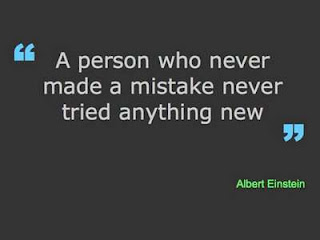Philosophies in Education
1.PROGRESSIVISM
Progressivists believe that individuality, progress, and change are fundamental to one’s education. Believing that people learn best from what they consider most relevant to their lives, progressivisms center their curricula on the needs, experiences, interests, and abilities of students. Progressivist teachers try making school interesting and useful by planning lessons that provoke curiosity. In a progressivist school, students are actively learning. The students interact with one another and develop social qualities such as cooperation and tolerance for different points of view. In addition, students solve problems in the classroom similar to those they will encounter in their everyday lives.
John Dewey (1859-1952) believed that learning was active and schooling unnecessarily long and restrictive. His idea was that children came to school to do things and live in a community which gave them real, guided experiences which fostered their capacity to contribute to society. For example, Dewey believed that students should be involved in real-life tasks and challenges
After reading John Dewey’s book and discussing his thoughts and ideas in class, one can see John Dewey’s relationship to progressivism. He wanted students to learn through action and being involved in the processes that will get to the end product. He wanted the students to work on hands-on projects so learning would take place, rather than memorization. In a regular classroom students just memorize what they need to know and it goes away after the test. In Dewey’s mind, the students would have to exercise their brain by problem solving and thinking critically.
2. BEHAVIORISM
Behaviorism was a movement in psychology and philosophy that emphasized the outward behavioral aspects of thought and dismissed the inward experiential, and sometimes the inner procedural, aspects as well; a movement harking back to the methodological proposals of John B. Watson, who coined the name. Watson’s 1912 manifesto proposed abandoning Introspections attempts to make consciousness a subject of experimental investigation to focus instead on behavioral manifestations of intelligence. B. F. Skinner later hardened behaviorist strictures to exclude inner physiological processes along with inward experiences as items of legitimate psychological concern. Consequently, the successful “cognitive revolution” of the nineteen sixties styled itself a revolt against behaviorism even though the computational processes cognitive hypothesized would be public and objective — not the sort of private subjective processes Watson banned. Consequently (and ironically), would-be-scientific champions of consciousness now indict cognitive for its “behaviorist” neglect of inward experience.
3. ESSENTIALISM
Essentialism is a relatively conservative stance to education that strives to teach students the knowledge of our society and civilization through a core curriculum. This core curriculum involves such areas that include the study of the surrounding environment, basic natural laws, and the disciplines that promote a happier, more educated living. Other non-traditional areas are also integrated as well in moderation to balance the education. Essentialists’ goals are to instill students with the “essentials” of academic knowledge, patriotism, and character development through traditional (or back-to-basic) approaches. This is to promote reasoning, train the mind, and ensure a common culture for all Americans.
Essentialism is the most typically enacted philosophy in American classrooms today. Traces of this can be found in the organized learning centered around teacher and textbooks, in addition to the regular assignments and evaluations typical in essentialist education.
4. EXISTENTIALISM
Existentialism is the general concern of existentialism is to give an account of what it is like to exist as a human being in the world. Epistemologically, it is denied that there can be an absolutely objective description of the world as it is without the intervention of human interests and actions. The world is a ‘given’ and there is no epistemological scepticism about its existence; it has to be described in relation to ourselves. There is no fixed essence to which beings have to conform in order to qualify as human beings; we are what we decide to be .. The issue of freedom and choice are of crucial importance in existentialism. Sartre thinks that authentic choices are completely undetermined. … If we make our decisions merely by reference to an external moral code or set of procedures, then we are, similarly, not arriving at authentic choices. Buber disagrees with Sartre over what it is to choose: he maintains that values which have been discovered, not invented, can be adopted for one’s life.
5.PERENNIALISM
Robert Maynard Hutchins (also Maynard Hutchins) (January 17, 1899 – May 17, 1977), was an educational philosopher, dean of Yale Law School (1927-1929), and president (1929-1945) and chancellor (1945-1951) of the University of Chicago. He was the husband of novelist Maude Hutchins. Although his father and grandfather were both Presbyterian ministers, Hutchins became one of the most influential members of the school of secular perennialism.
Perennialism means that one should teach the things that one deems to be of everlasting importance to all people everywhere. The most that topics develop a person, it says that one should teach principles, not facts. Perennialism philosophy of education says since people are human, one should teach first about humans, not machines or techniques. Modern Perennialism is a strategy that teaches scientific reasoning, not facts, this gives the students a human side to the science, and shows the reasoning in action Perennialism philosophy of education focuses first on personal development.



Comments
Post a Comment